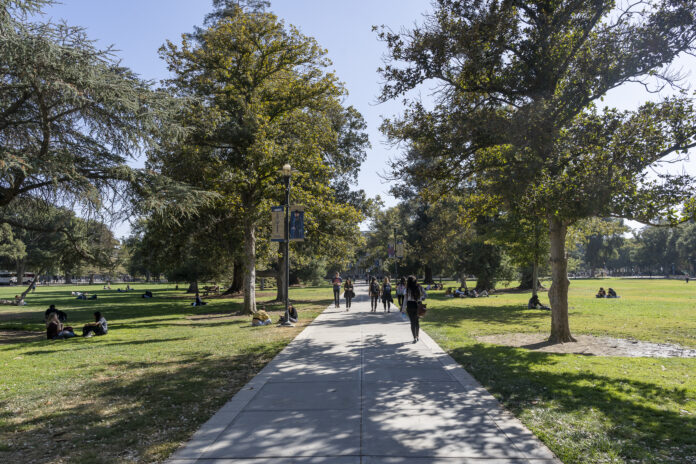The UC Davis professors are being honored for their contributions to law and writing
By RUMA POUDELL — arts@theaggie.org
Lea este artículo en español.
The University of California’s education system is notable for its faculty, who actively keep up their own research and other scholarly contributions in addition to teaching courses. This year, UC Davis professors Lucy Corin and Mary Ziegler have been recognized for their exceptional work by the prestigious Guggenheim Fellowship program.
The Guggenheim Fellowship has been around for 98 years, established to honor Simon Guggenheim’s son who passed at an early age. Each year, 175 candidates are granted the Fellowship out of a pool of around 4,000 applicants, and the selected candidates are awarded $30,000-$45,000 to further pursue their scholarly passions.
Corin is a writer and professor of English. Her fiction writing is experimental, informed by avant-garde traditions and elements of oral storytelling and adds fantastical aspects to the mostly realistic worlds that she writes about.
“I’m really interested in the history of artists who are making work that is trying to upend people’s expectations about what storytelling can be and what it’s for,” Corin said. “People with experimental tendencies tend to look at what people seem to like and think is cool and interesting and disrupt [or challenge it] in some way […] to get people to look at things they should be looking at.”
Ziegler is an expert on the history of reproductive rights and conservatism in the U.S. and is a professor at the UC Davis School of Law. She began her research early in her career as a law student after her professor in a legal history course said there wasn’t much history behind reproductive rights.
Both professors are, as Corin would say, “shaking it up” in their fields by helping people look at issues and topics that they believe haven’t been adequately explored. Both recipients expressed how grateful they are for the awards.
“It’s an incredible affirmation,” Corin said. “As a writer, [I’m] always unsure about whether [I’m] really good at what [I’m] doing, [no matter how] long [I] work on it and as many times as somebody decides to publish [my work]. And so, having something official that’s run by people I know are extraordinary at what they do and care deeply about literature is deeply gratifying.”
She plans to use the funding to work on her next book, “Les and Rae.” The work will reimagine how we can think of animals, asserting that they are sovereign and independent from human utility.
As a historian, Ziegler emphasized how history “is driving what you’re seeing now [in the world or reproductive rights].” Granted this funding, she will now be able to research archives of conservative collections on fetal rights and publish a new book highlighting the invasive impacts of abortion law that don’t apply just to pregnant people.
Both Ziegler and Corin are busy with their responsibilities teaching and creating new pieces of work for the world. However, their active lifestyles are sustainable because of the passion they both have for what they do and their belief in the impact their work can have.
The professors offered some advice for students interested in either writing or law. For those interested in diving into writing, Corin recommends beginning by reading some great pieces of literary work (“The Swank Hotel” is Corin’s favorite pick, which she authors), and Zieger recommends that students intrigued by law should read up on history and stay up to date in the present world through journalism.
Written by: Ruma Poudell — arts@theaggie.org




